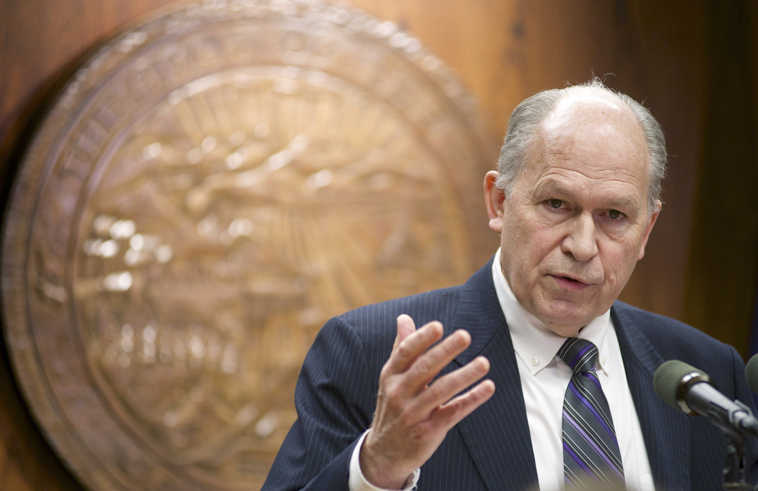JUNEAU — Gov. Bill Walker said he considers Medicaid expansion and an Interior energy bill to be must-haves for the remainder of the legislative session.
Walker told The Associated Press in an interview Monday that Medicaid expansion should be able to pass this session. Walker last week introduced a bill calling for expansion and reforms to the current Medicaid program. Walker initially put expansion-related issues in the budget, but the House rejected that approach, and lawmakers called on him to introduce a bill.
For states accepting expansion, the federal government is expected to pay 100 percent of costs for newly eligible recipients through calendar year 2016, stepping down to 90 percent by 2020. Walker said he would rather not forgo another year of the 100 percent payment. He said upfront savings would be reduced by waiting another year.
While minority Democrats have embraced expansion, other lawmakers have said they would like to see efforts to reduce and contain costs within Medicaid before expanding the system. Medicaid comprises about 60 percent of the state health department budget and is a driver of the state operating budget.
As his committee takes up Walker’s bill, Rep. Paul Seaton, R-Homer, is hoping to put in place timelines for reforms to be implemented. Seaton chairs the House Health and Social Services Committee, and thinks it’s possible to pass a bill this session if fellow lawmakers believe the proposed reforms are real and that there’s accountability in the system. Sen. Bert Stedman, who chairs the Senate Health and Social Services Committee, said an issue of this magnitude would normally take months to move through the process and he would be surprised if it could be resolved by the scheduled adjournment date. But he said lawmakers would try.
The Interior energy bill, which hasn’t gotten a lot of attention over the last month, is scheduled for a hearing before a special Senate committee this week.
The major issue this session has been the budget. The state faces projected multibillion-dollar deficits amid the fall in oil prices, and considerable focus has been placed on cutting spending and looking at ways to downsize state government. It is seen as virtually impossible for the state to cut its way out of the situation, and Walker and state legislators expect to take a multi-year approach. The priority this year, Walker said, is finding where the most obvious adjustments to be made are.
During the interim, the administration will continue to look for ways to consolidate services, he said. There is an ongoing look at services that could be privatized and he said he expects to begin soon a conversation on potential sources of additional revenue. He said his position has been that before the state looks at additional revenues, it makes adjustments to the budget.
For now, he said he is not planning to revisit the state’s oil production tax, which was overhauled in 2013 and withstood a referendum last summer.
The prior tax system was credited with helping to fatten the state’s coffers. The idea behind it was that the state would help oil companies on the front end with things like tax credits and share profits on the back end when oil flowed and prices were high. Walker acknowledged that the state’s ability to replenish its constitutional budget reserve fund has been “significantly modified.”
“That’s why we have to look at this significantly differently and also look toward the long game because we don’t have that get-well card, so to speak, that we used to have,” he said.

